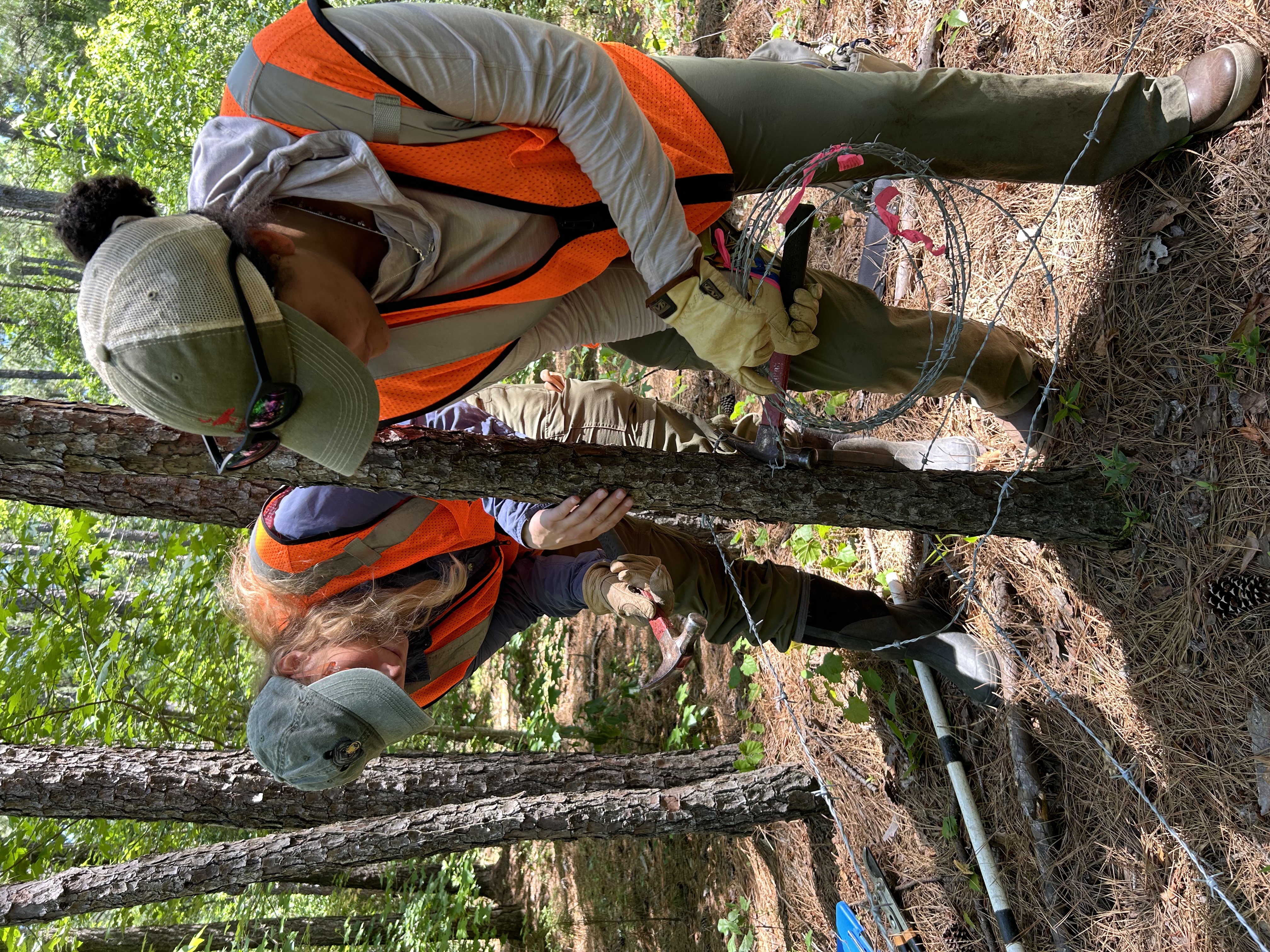NEWS ARTICLE
The bear necessities: Martin Marietta teams participate in black bear research program
Teams in the East Division recently helped scientists study the health of North Carolina's black bear population

With help from Martin Marietta, a team with the Coastal Black Bear Project has conducted some bear-y important research.
The group — made up of technicians from North Carolina State University, Mississippi State University, the North Carolina Wildlife Resource Commission and several other wildlife institutions — conducted a wide-ranging research study to gain valuable insight into black bear genetics, density and abundance across North Carolina’s coastal plains.
Researchers set up more than 1,300 temporary hair sampling sites across nearly 40 eastern coastal counties in 2023 and 2024. Included in that group were 14 sites on various Martin Marietta properties, including the Maple Hill, Angola Bay and Dale properties, Rocky Point Quarry and Leland Yard.
Collection stations were located in accessible wooded areas to ensure a suitable environment for the research equipment. Locations were also selected to ensure the work of the researchers and miners did not conflict.
Each research site was surrounded by a barbed wire enclosure and baited with foods selected specifically to attract bears (like tasty, glazed donuts). As a bear entered an enclosure, the wire passively and gently collected hair samples.
Wildlife technicians collected more than 13,000 samples during the study and said each one will provide a wealth of data about the region’s bears, including the size and health of the overall population. Such information can be incredibly valuable, said Coastal Black Bear Project Crew Lead Stephanie McFadden.
“Black bears are an important indicator of a healthy ecosystem, which helps ensure biodiversity and improves human health. Having an opportunity to learn more about their behavior and ecology and knowing that our work will be used to inform management practices that help protect and preserve them is an honor,” she said. “Our work wouldn’t be possible without the cooperation of landowners and companies like Martin Marietta.”
Martin Marietta East Division Land Manager Mitch Scott said the Coastal Black Bear Project’s research aligns perfectly with the company’s environmental stewardship priorities.
“Martin Marietta was able to utilize its vast land holdings to allow educational research for data collection,” he said. “This was a great opportunity to assist in wildlife research and help to further our sustainability efforts.”
Director of Environmental Services Steve Whitt, who worked closely with the research team, echoed Scott’s sentiments.
“Preserving wildlife is one of our core values. Allowing some of our idle properties to be used in a non-invasive genetic study to monitor the health and population of the American Black Bear, certainly fits,” Whitt said. “We have seen significant restoration to the range and population of this beloved species over the past 50 years. The information collected during this most recent study will help with future management decisions that should allow this trend to continue.”